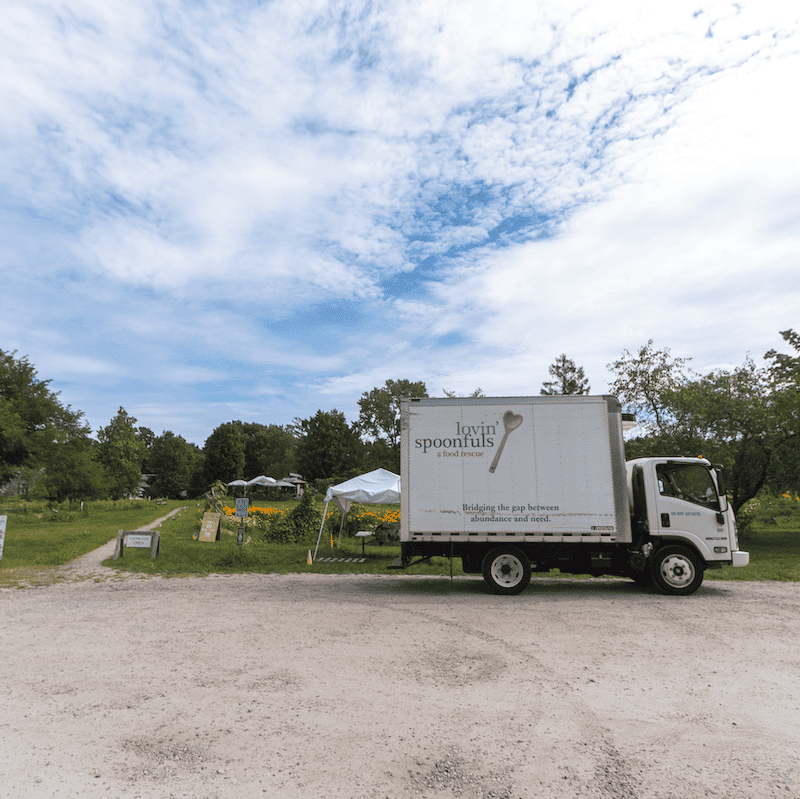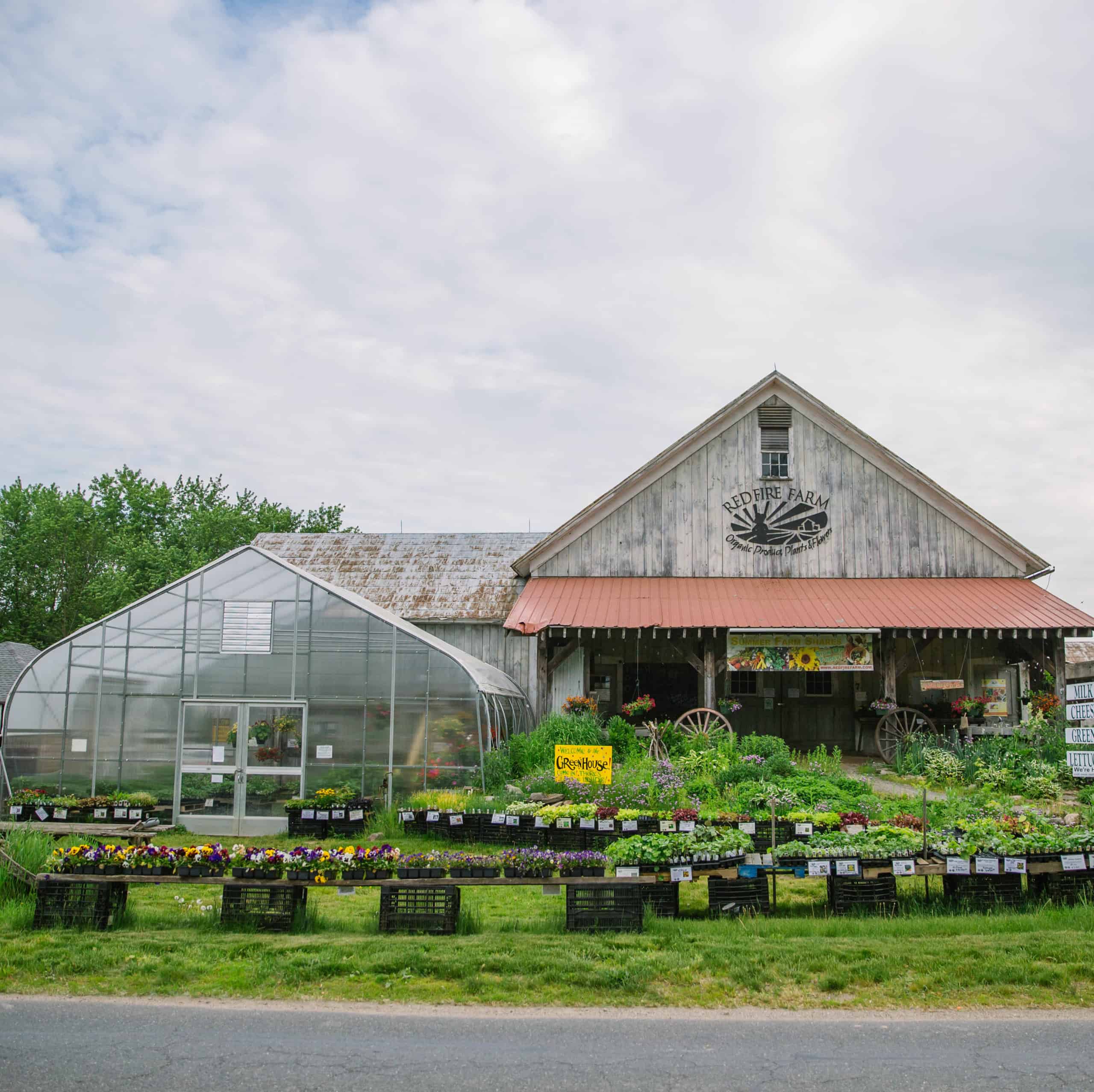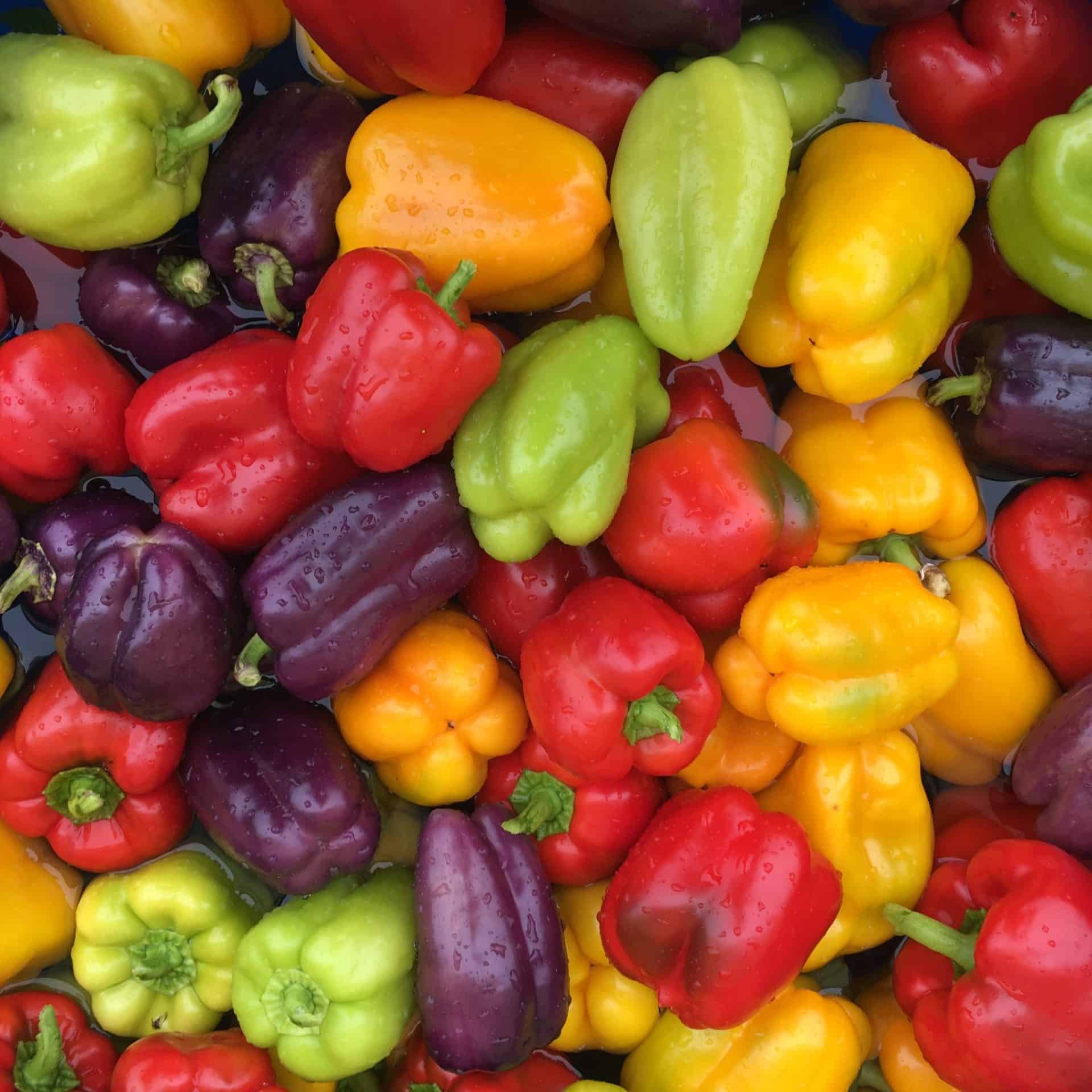Spotlight: Local Farms

Did you know that during Massachusetts’ growing season, we partner with local farms and gardens to rescue their surplus harvest? These produce-heavy and nutrient-rich rescues are important: Our focus is on rescuing good food that meets the nutritional needs of people facing food insecurity. Our farm and garden partners help us do just that.
Hear from a few of our farm and garden partners why they find value in food rescue and more in the Q&A below.
Land’s Sake Farm: Brendan Murtha, Farm Manager

Why is it important for your farm to have a food rescue plan?
Food access is one of the founding principles that Land’s Sake Farm was built on and we greatly value our partnership with Lovin’ Spoonfuls and other food access organizations in the area. Food waste is a huge problem at every level of the food system (as I’m sure many people already know) and this holds true on the farm as well. It is very important to us as an organization and as individuals to make sure that as little produce as possible ends up rotting in the fields (or compost piles).
It is similarly important that any donated food is distributed effectively to partners and communities where it is most needed. We rely on organizations like Lovin’ Spoonfuls to assess these distribution channels and coordinate accordingly. This is something that we as farmers are not always well positioned to do, either because we are short on time or resources (think refrigerated truck, delivery staff, etc.) or we simply don’t have the networks in place to know where the food is most useful. Working with Lovin’ Spoonfuls allows us to maximize our impact by focusing on just growing food and being able to feel confident that it will find a meaningful home where it has a real impact.
What’s your favorite tip to reduce wasted food at home?
I would encourage folks to learn the seasonal cycles of abundance on local farms and try out food preservation. Canning tomatoes, freezing berries, and making pickles are just a few examples. Often times preserving food is easy and fun! It is a good deal for consumers because farmers will often give bulk discounts for large orders. It helps farmers out because they are able to move abundant crops quickly when they have an excess. I would also encourage folks to start composting so that the food waste they do create doesn’t end up in a landfill.
What do you have going on at your farm right now?
We are headed into the bulk harvest season with full force at Land’s Sake. 2021 brought a few challenges with persistent precipitation and unpredictable temperature swings but we are chugging right along. We have seen a good supply of storage crops coming out of the ground. Our most immediate project is our winter squash harvest. Spaghetti squash, acorn squash, and delicata are all waiting for a dry day to be harvested. Fall carrots and beets are growing and the first of our fall brassicas are a week or two away. We invite folks to come check out our farm stand at our main farm site in Weston. We have all sorts of Land’s Sake-grown produce for sale, as well as many other local products.
Learn more about Land’s Sake Farm here.
Red Fire Farm: Kelley Dennis, CSA Program Manager

Why is it important for your farm to have a food rescue plan?
We work hard as a farm to grow amazing, organic, nourishing foods for our families, friends, and communities. We send so much produce out on a weekly basis (imagine several tons of food between Farmers’ Markets, CSAs, and wholesale orders)! There is bound to be an abundance of leftover, high-quality produce. We love the idea that this amazing food that we’ve worked so hard to grow, harvest, and package, can be reclaimed and distributed into the communities that we partner with!
What’s your favorite tip to reduce wasted food at home?
I think, as a nation, food waste is a huge issue. We have people across our country who don’t have access to food to feed their families. At the very same time, we throw away something like 108 billion pounds of food every year…that’s ludicrous! I have the idea and dream that food (and whole foods at that), should be available to everyone! I try to keep that in mind in my own kitchen, practice thankfulness for the abundance we have, and not take it for granted!
To eliminate food waste in our home, I do three things:
- I try to keep meals simple during the week. My husband and I both work full time at the farm and we also homeschool our kids. Life is very full! If I make a menu that has elaborate meals on it, I know when the day comes to make those meals, we will be too tired to cook them and end up eating takeout. I love to spend time in the kitchen on the weekend making fun meals when I have more time!
- We live on a tight budget by choice. The foods that I buy need to not only nourish us, but I want to get the most nutritional bang for my buck out of them. It has been a kind of challenge to me to find the most bizarre ways to use our food scraps!
- I plan meals around the food that we have that needs to be used soonest, instead of just what I want to eat that night.
What do you have going on at your farm right now?
As for events happening at the farm right now, there are a bunch! We are currently sending our produce to the Tuesday Farmers Market at Forest Park in Springfield, MA; the Tuesday Farmers Market by Thorne’s Market in Northampton, MA; and we are excited to have joined the Farmers Market at Copley Place on Friday’s in Boston! CSA shares can be picked up at all of these markets, too.
At our Red Fire Farm store in Granby, we have Pick-Your-Own fields filled with fruit, vegetables, herbs, and flowers! If people don’t have time to come out for Pick-Your-Own, we have three pages of bulk offerings on our website! We currently have a Sunflower Spiral Garden that people can walkthrough. Later in September, we will have Pick-Your-Own Pumpkins and a Magical Popcorn Maze with things to search for and riddles to answer! And last, but definitely not least, we are currently planning ahead for our Fall CSA season that starts in November.
Learn more about Red Fire Farm here.
Green City Growers: Sarah Gayer, Horticulture Manager

Why is it important for your team to donate the food you grow?
We see our partnership with Lovin’ Spoonfuls as a way to give back to the community and to make sure that everything we grow can be enjoyed and not wasted.
What’s your favorite tip to reduce wasted food at home?
If you have leftover veggies you don’t have a use for, share with friends and housemates! If fruit or veggies have gone off, we feed them to our worm bin.
What do you have going on at the gardens right now?
We’re doing our fall planting right now- storage crops like carrots and radishes, greens like spinach and arugula, and brassicas like kale and cabbage. We’re also still harvesting beautiful summer crops like tomatoes, peppers, cucumbers, squash, and eggplant!
Learn more about Green City Growers here.
Lovin’ Spoonfuls also rescues from Allandale Farm, Volante Farms, and Little Leaf Farms. Thank you to all our farm partners for helping us bridge the gap between abundance and need.